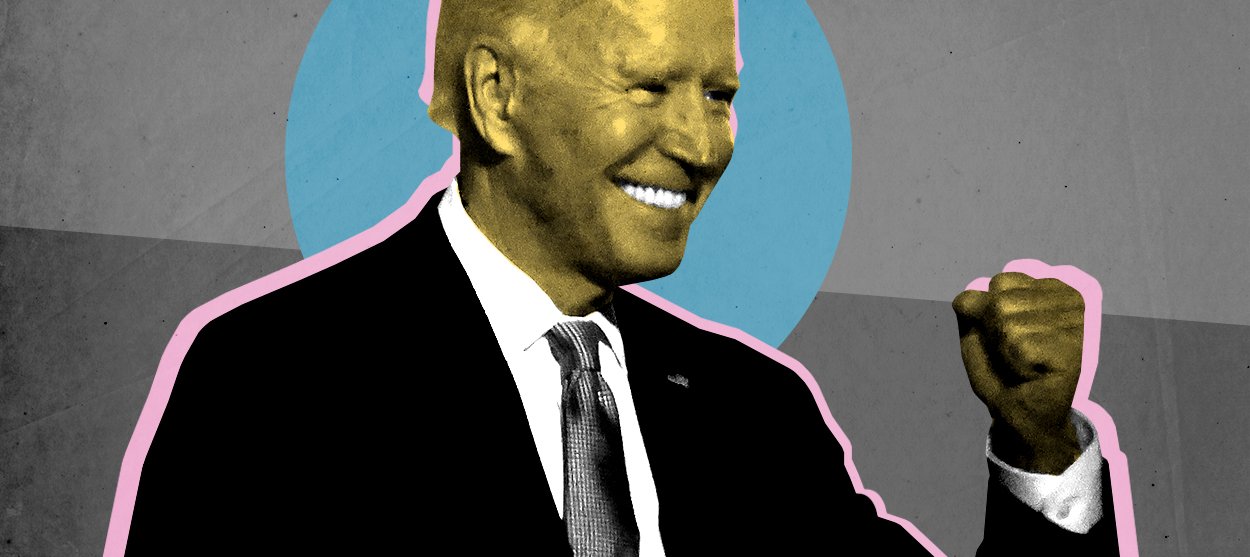Play all audios:
Even if a couple of January run-off races in Georgia give President Biden a friendly Senate, the 2020 election still wouldn't be the "blue wave" that many Democrats hoped for.
No Biden landslide almost surely means no Green New Deal, no big tax hikes on the rich, and no Supreme Court packing. Nor does the size of the Biden win represent the sort of overwhelming
and national, soul-cleansing repudiation of Trumpism that Democrats and NeverTrumpers had desperately desired. Still, anti-Trumpers of all flavors should be ecstatic at the results from
Tuesday, even if Republicans end up holding the Senate. It should now be obvious that, if not for a once-in-a-century pandemic, President Trump would likely have won a second term. Maybe
quite easily. That despite the Muslim ban, border separations of kids from parents, impeachment, obnoxious tweets — and much more. On February 26, the Centers for Disease Control and
Prevention reported its first case of suspected local transmission of COVID-19 in the United States, a patient in California with no travel history to an outbreak area and no known contact
with an infected person. At that point, prospective Democratic nominee Joe Biden had about a 4-point polling lead over Trump. But that was hardly a comfortable lead given the assumed
Republican Electoral College advantage. It is widely thought that Democrats need to win by at least three or four points to reliably collect the needed 270 electoral votes. SUBSCRIBE TO THE
WEEK Escape your echo chamber. Get the facts behind the news, plus analysis from multiple perspectives. SUBSCRIBE & SAVE SIGN UP FOR THE WEEK'S FREE NEWSLETTERS From our morning
news briefing to a weekly Good News Newsletter, get the best of The Week delivered directly to your inbox. From our morning news briefing to a weekly Good News Newsletter, get the best of
The Week delivered directly to your inbox. Of course, we now know that public polling again underestimated Trump's support. While the final FiveThirtyEight polling average had Biden up
by 8.4 points, his final popular vote edge is expected to be between three and six points. If you apply that error range to those pre-pandemic polls, it seems probable that Biden's
supposed 4-point lead was mostly or entirely a mirage. There may have been no lead at all. In other words, Trump should have been seen as the slight favorite, given the GOP's built-in
Electoral College edge. And that's exactly how prediction markets saw the race. Back in February, an average of them had Trump a 60-percent favorite. These are the same betting markets
that had Biden a 65 percent favorite heading into Election Day vs. 85 percent or higher in the various poll-driven models. Score one for markets over models. So if Trump was the favorite
back in February and lost, what happened? Obviously the pandemic and mini-depression are what happened. Starting in late February, Trump's market-based odds steadily declined. If there
had been no pandemic (or if the president had better handled the outbreak), Trump was in good shape for re-election. Indeed, the course of 2020 may have seen his political position
strengthen. The core of Trump's re-election argument was going to be his handling of the economy. Polls at the start of 2020 consistently gave him a double-digit net approval rating on
that subject, an edge that may have steadily widened. For instance: Goldman Sachs expected the economy to accelerate over 2019, thanks in part to the de-escalation of the U.S.-China trade
war. Faster GDP growth would have driven lower the already historically low jobless rate. Goldman's forecast was for an unemployment rate of 3.25 percent by the end of the year,
"the lowest rate since the Korean War," the bank noted. And along with the continued decline in unemployment would have come accelerating wage growth, perhaps the fastest since the
boomy 1990s. Even better for Trump, there's little evidence that Democrats would have been able to fashion an effective counter-argument. One reason why: Democrats denied the reality
of the economy's strength under Trump — even though it was an extension of the Obama economy — particularly that working-class wages were rising fastest, mostly due to the tight labor
market. If you're looking for a reason why Trump may have performed surprisingly well among working-class minorities earlier this week, you can start right there. Now, Team Biden could
have adopted the Bush 2000 strategy, where the campaign also faced an incumbent party with a strong economy. Rather than denying its strength, Team Bush argued that Clinton-Gore was not
responsible for it and had wasted all that growth by not using it to shore up entitlements. The strategy reassured voters that Bush understood economic reality and would not do anything
radical to screw things up. But Biden was promising lots of change, including massive spending programs and big tax hikes. And we know that at least some voters took seriously the GOP's
"socialism" charge against Democrats. Maybe a more economic-focused campaign would have helped Biden somewhat in the no-pandemic scenario. And maybe in our pandemic reality, more
importantly, such an approach would have given Biden a few more electoral votes and a few more senators — and a bit less post-electoral ennui for Democrats and other Trump opponents.
We'll never know. But it could have been worse. And if not for COVID-19, it might well have been.

